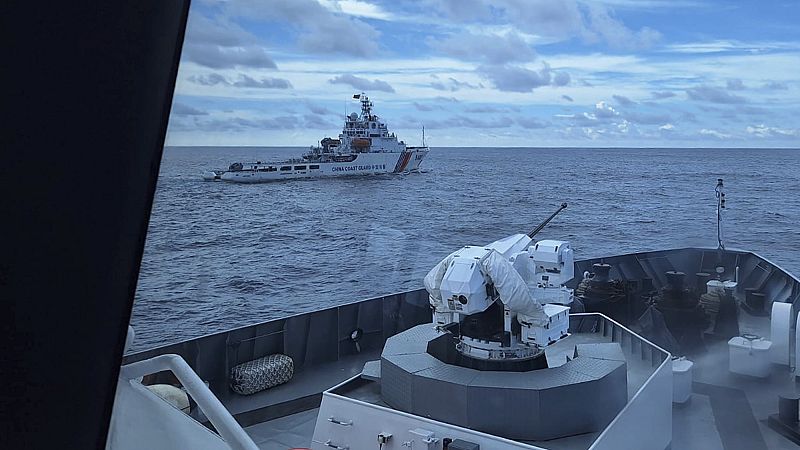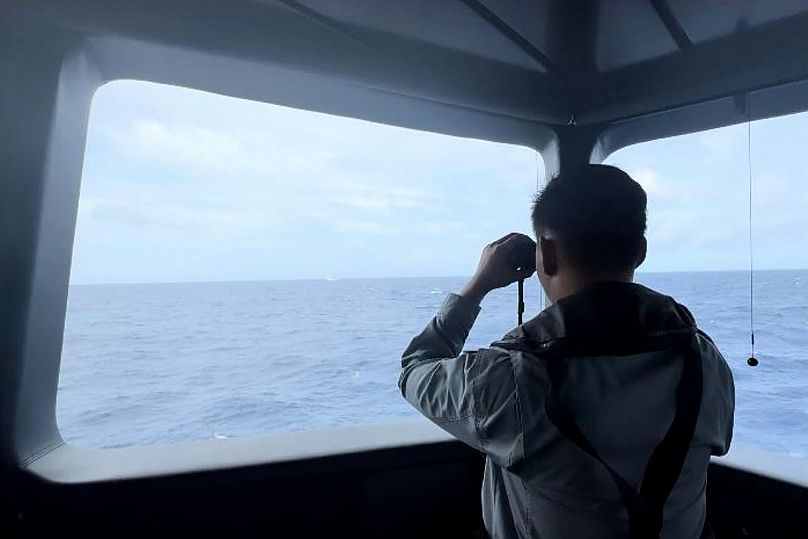
Indonesia and China have reaffirmed their commitment to maritime cooperation, vowing to strengthen joint efforts on security and safety in the contentious South China Sea, even as Indonesian unease lingers over Chinese activity near the Natuna Islands.
The pledge followed the inaugural joint meeting of foreign and defence ministers from both nations in Beijing, underscoring their intention to promote infrastructure development, mineral extraction and maritime security, the latter viewed as particularly significant amid Jakarta's concerns about Beijing's maritime assertiveness.
Last month, diplomats from France and Indonesia agreed to launch a new maritime security initiative aimed at promoting "peace and safety" across the Indo-Pacific waters, with military cooperation growing between the two nations in the past years.
"We will enhance law enforcement and security cooperation to jointly combat transnational cooperation," said Chinese Foreign Minister Wang Yi, speaking alongside his Indonesian counterparts.

"We agreed that safeguarding peace and stability in the South China Sea is in line with the interests of all parties and we will set an example in maritime cooperation."
Although neither side explicitly mentioned the Natuna Islands, the sensitive area — part of Indonesia's exclusive economic zone but overlapping with China's sweeping "nine-dash line" claim — remains a flashpoint.
Indonesia is not part of the broader territorial disputes involving six other countries, but its waters have been routinely breached by Chinese fishing boats, often escorted by Chinese coast guard vessels.
In response, Indonesia has stepped up maritime patrols and bolstered its military presence in the region. The recent memorandum of understanding signed between the two nations' coast guards aims to formalise maritime security collaboration.
China's southernmost claim lies within 370 nautical kilometres of Indonesia's economic zone, sparking repeated clashes. Indonesia has seized Chinese vessels operating in its waters, while local officials remain wary of Beijing's plans for joint development projects around the Natuna chain.
Despite ongoing tensions, economic ties between the two nations continue to strengthen. China has become Indonesia’s largest trading partner and investor, funding headline projects such as the Jakarta-Bandung high-speed rail and the Cirata floating solar plant in West Java.
Indonesian Foreign Minister Sugiono echoed his Chinese counterpart’s remarks, stating: "We also agreed to stand united against terrorism, violent extremism and cyberthreats. We share concern over the threat of transnational crime in the region that increasingly targets our nationals."
China's Defence Minister Dong Jun added that both sides had agreed to increase communication and conduct joint counterterrorism drills later this year.
Indonesia has also welcomed Chinese infrastructure investment under Beijing's Belt and Road Initiative, despite disputes over costs and timelines.
China has handled South China Sea disputes by addressing claims individually to avoid a united opposition, while also reversing earlier commitments such as its pledge not to militarise the artificial islands it controls.







